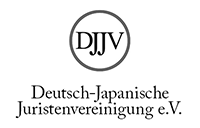Demokratie und Kaisertum: Staatsrechtstheoretische Betrachtungen zum 60jährigen Bestehen der japanischen Verfassung
Abstract
According to Art. 1 of the Japanese Constitution, the “Emperor shall be the symbol of the State and the unity of the people.” Since 1947, when the Constitution came into effect, there has been no lasting solution to the problem of how this provision should be interpreted. It is a widespread opinion that the transformation of the position of the tennô from an absolute ruler to a mere symbol has constituted a serious breach in the Japanese governmental system. A closer examination of the impact of the tennô on Japanese politics shows that, as early as the beginning of the Meiji restoration, he actually never possessed any real political power because other institutions not mentioned in the Constitution had gained significant influence. However, the contradiction that seems to have existed during the Meiji era between the political reality and the constitutional role of the Emperor was not regarded as such at that time. In contrast to Western concepts of monarchy, sovereignty, and authority, which are deeply influenced by Christian connotations, the Japanese understanding of the godliness of the Emperor has always implied self-restriction, a balance between differing political forces and love toward the Emperor’s subjects. Thus, the tennô has been able to serve as a means of identification for the Japanese people for centuries. From this point of view, no substantial changes emerged from the enactment of the new Japanese Constitution after World War II. As the tennô did not wield any real political power before 1945, the institution of the Emperor could be maintained in spite of the introduction of democracy and the sovereignty of the people. This smooth transition has been possible not because the Emperor was downgraded to a symbol, but because he retained the position which effectively already inhered in him during the Meiji era. Therefore, the Emperor can be seen neither as an absolute monarch nor as a pure symbol of the Japanese state. As the basic structures of the Japanese law system are deeply influenced by European law with its principle of legal personality, the position of the tennô within the framework of constitutional law should rather be expressed in specifically legal terms. The concept of legal authorization can be regarded as being suitable to deliver an appropriate legal concept for the function of the Japanese Emperor in the post-war Constitution: he serves as a delegate of the Cabinet in order to carry out certain activities that are defined by the Constitution and for which he is authorized by the Cabinet. The unspecified term “symbol” should be replaced by the legal term “delegate.”






